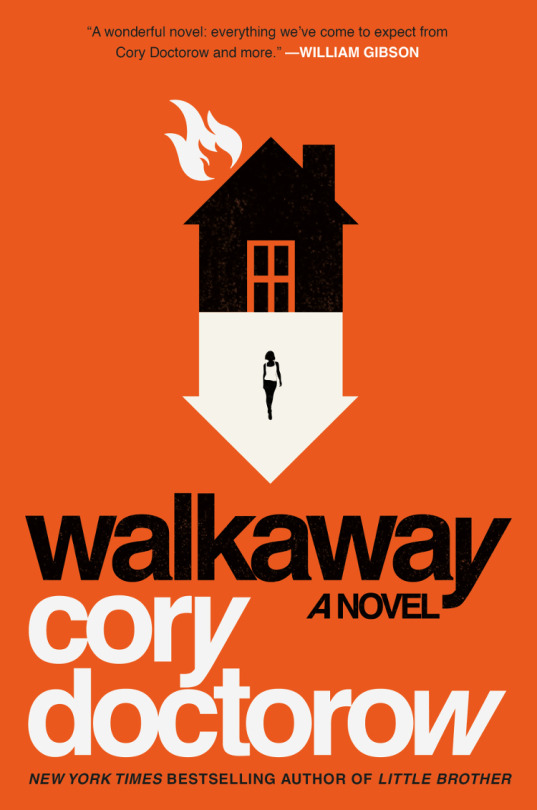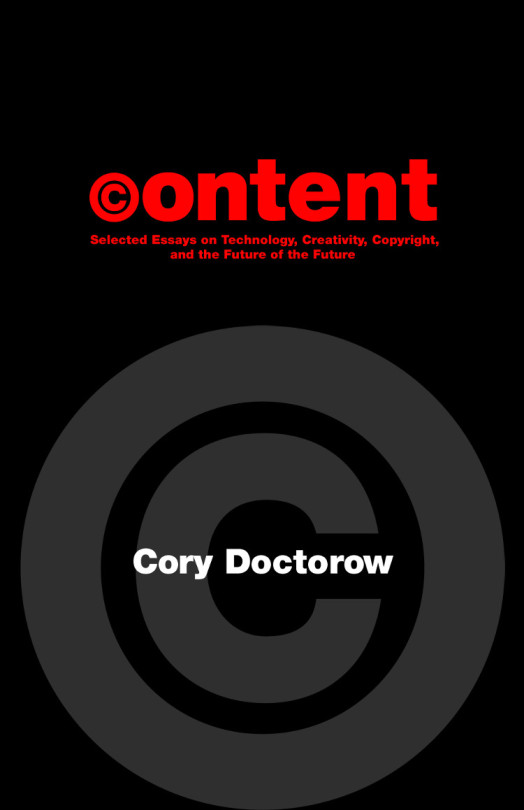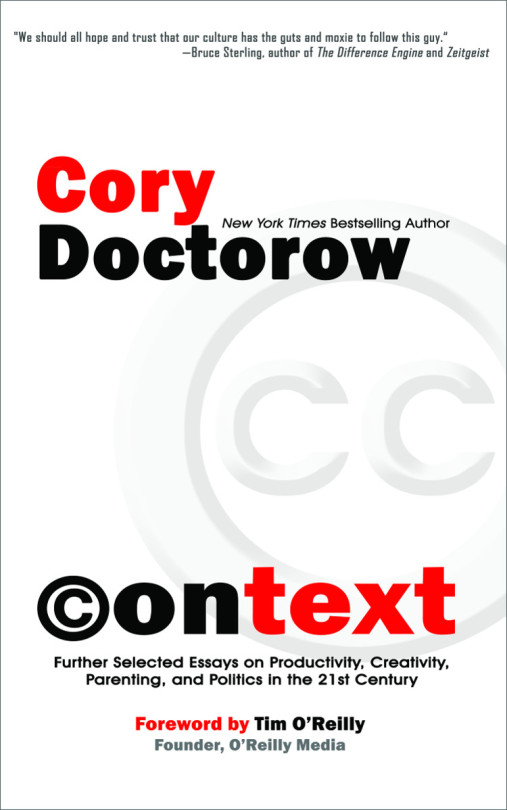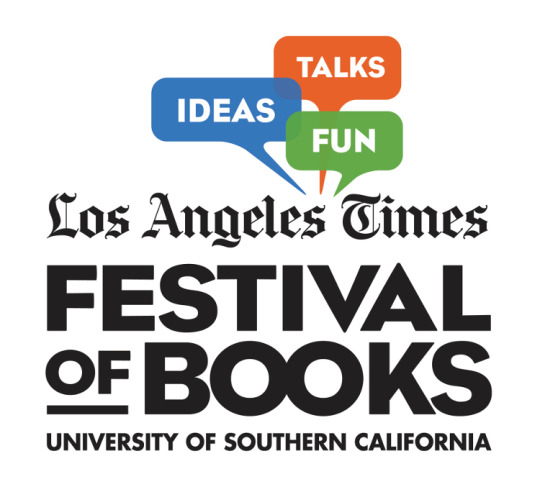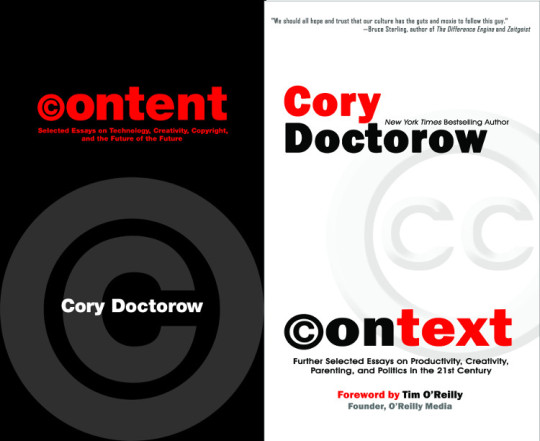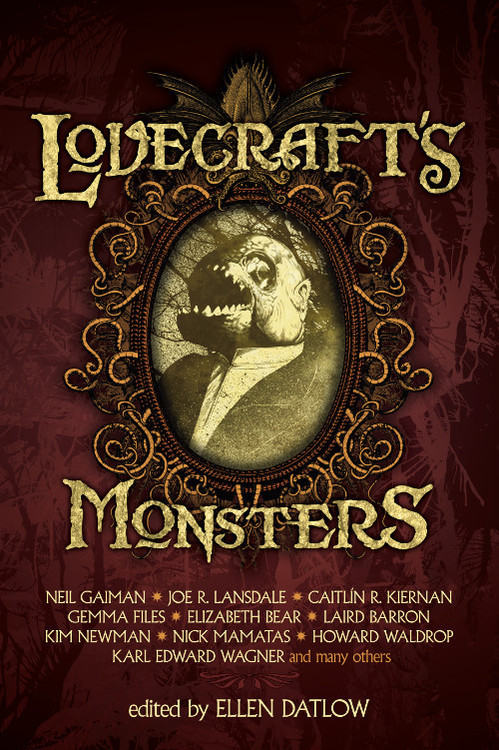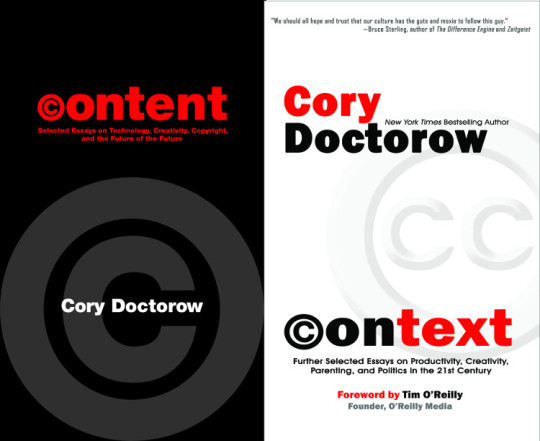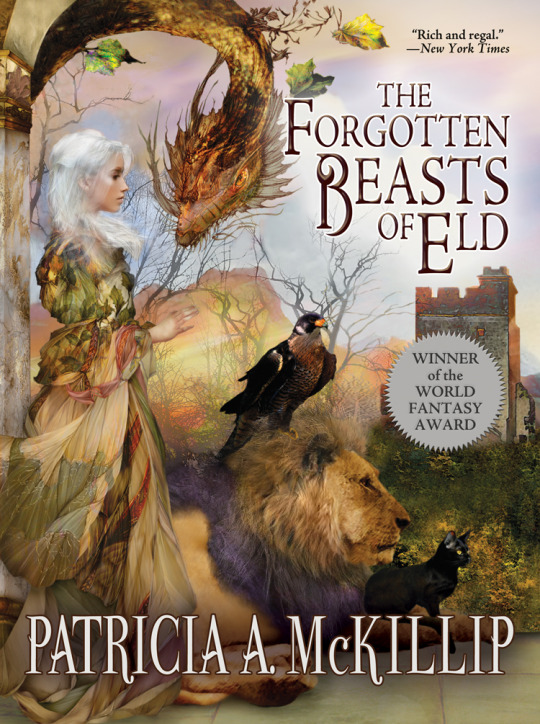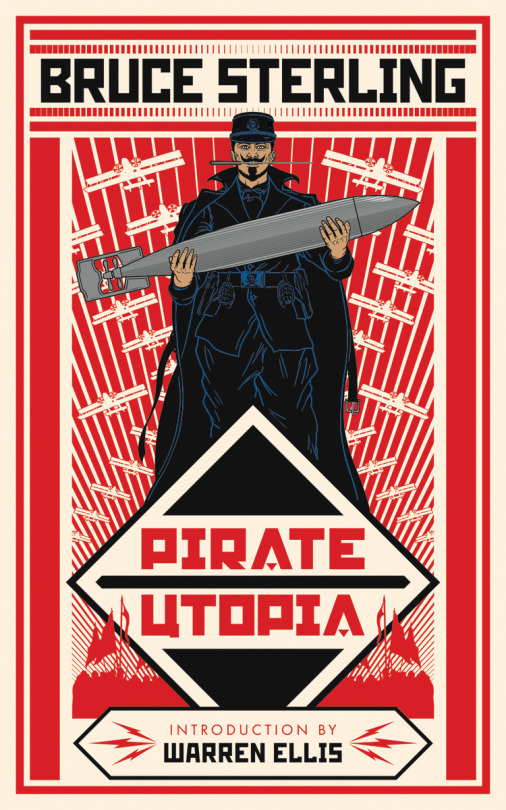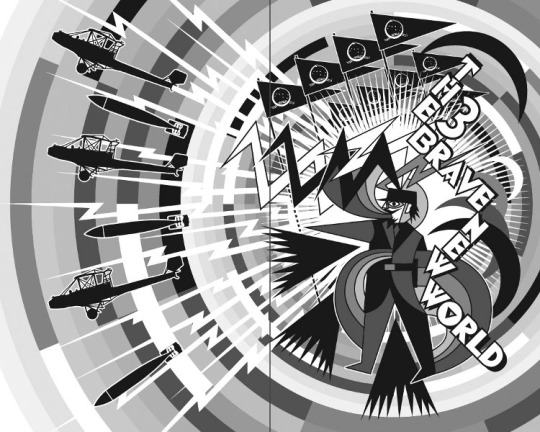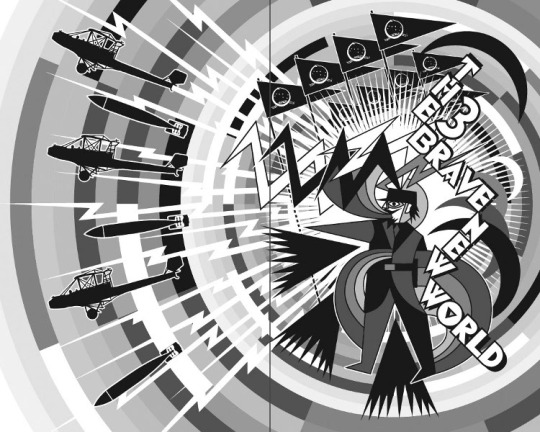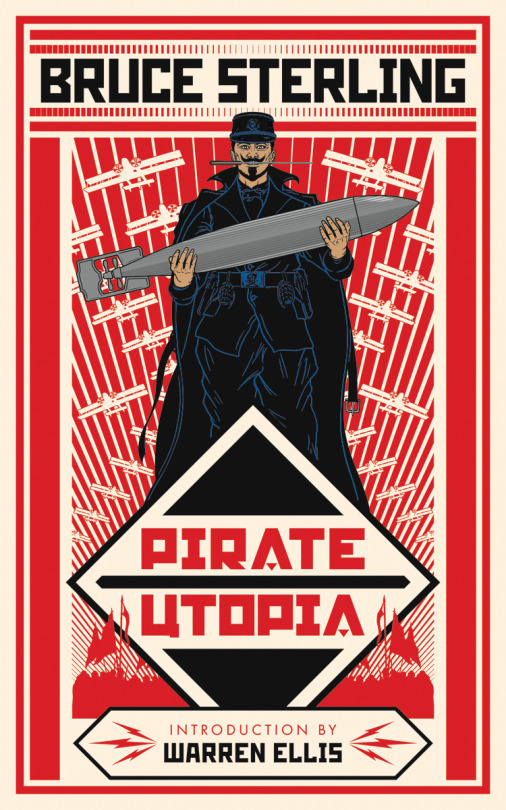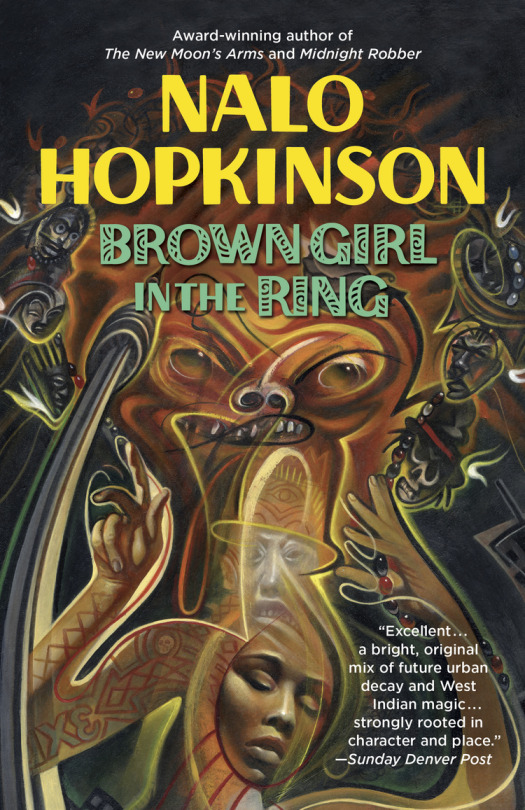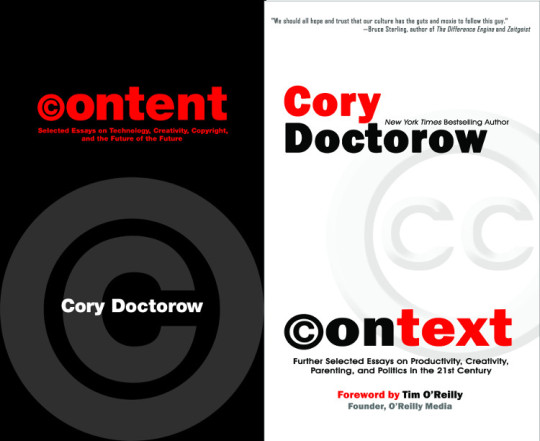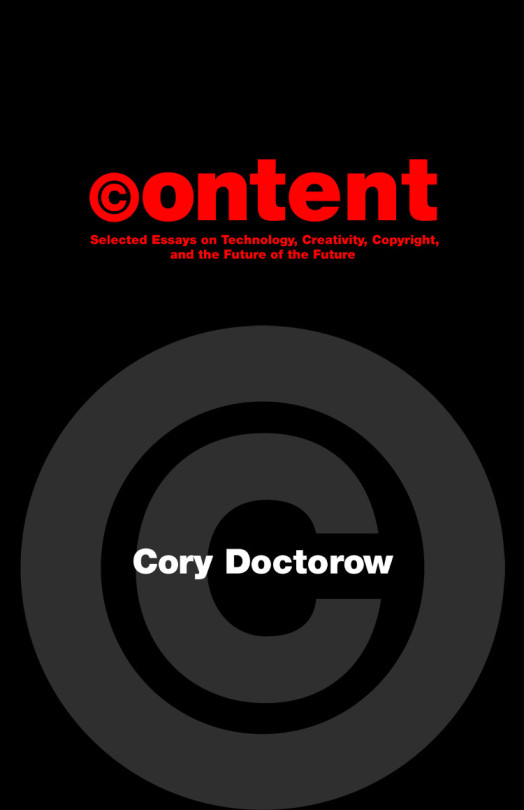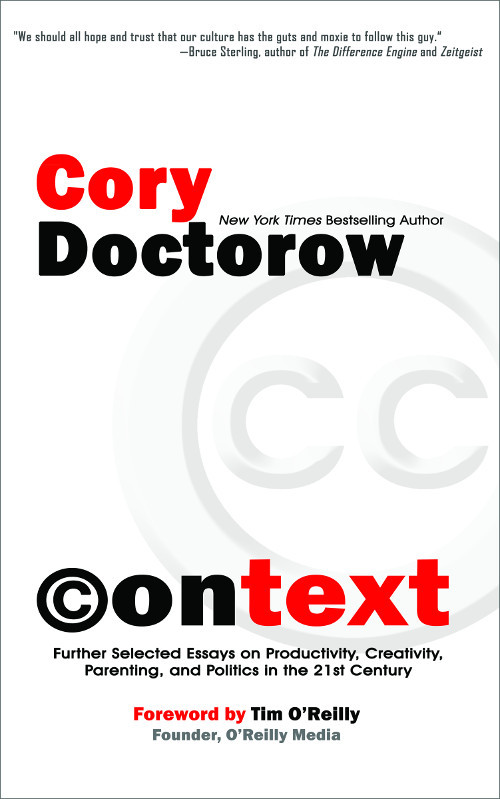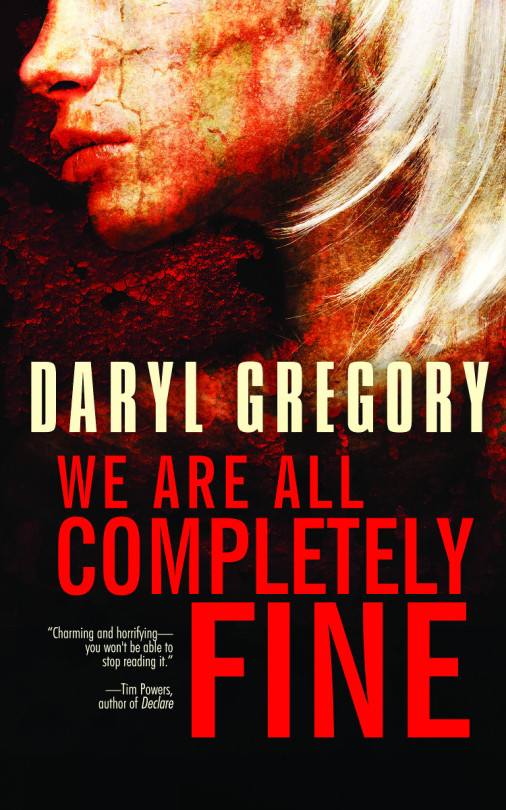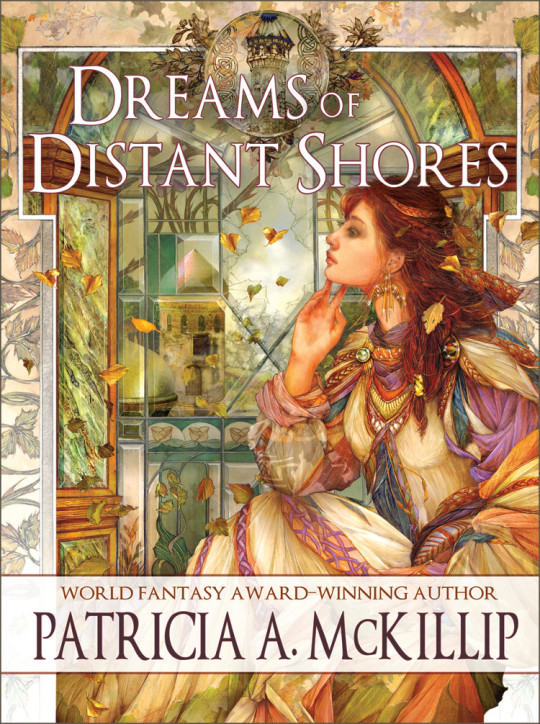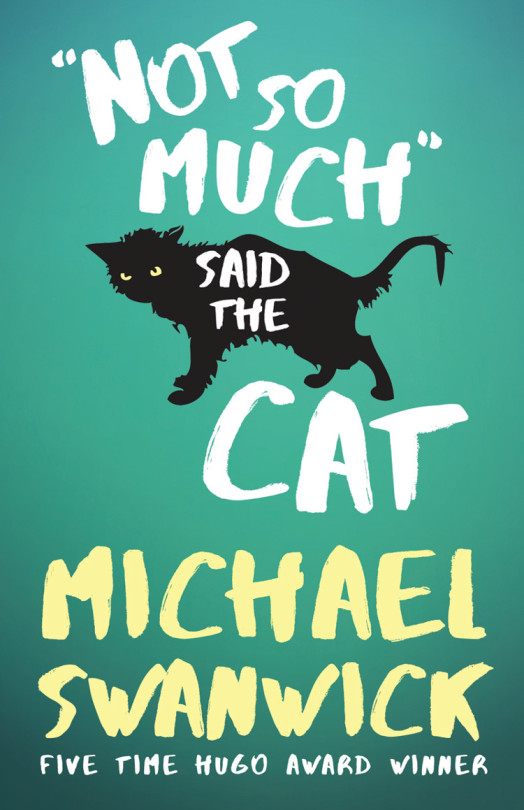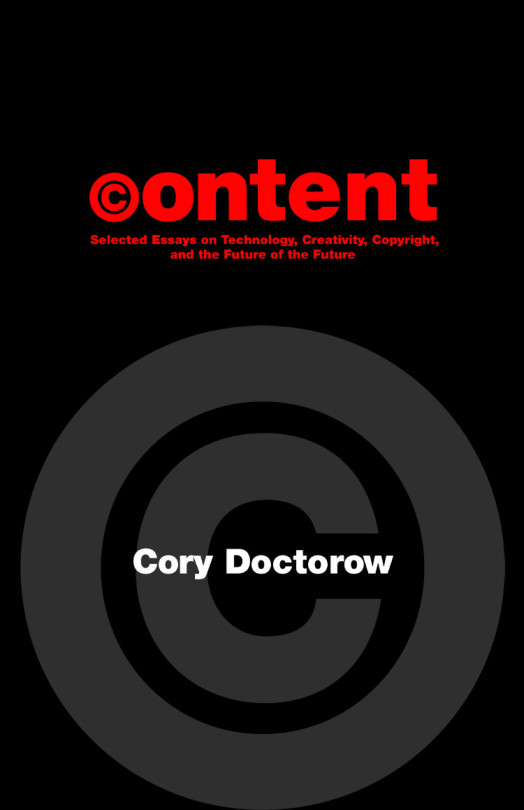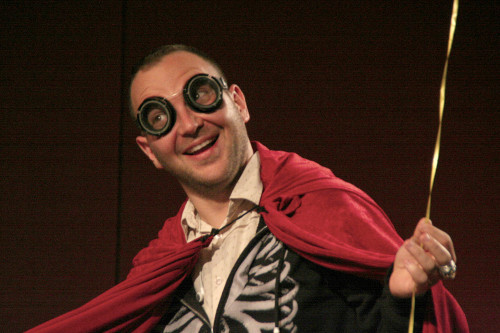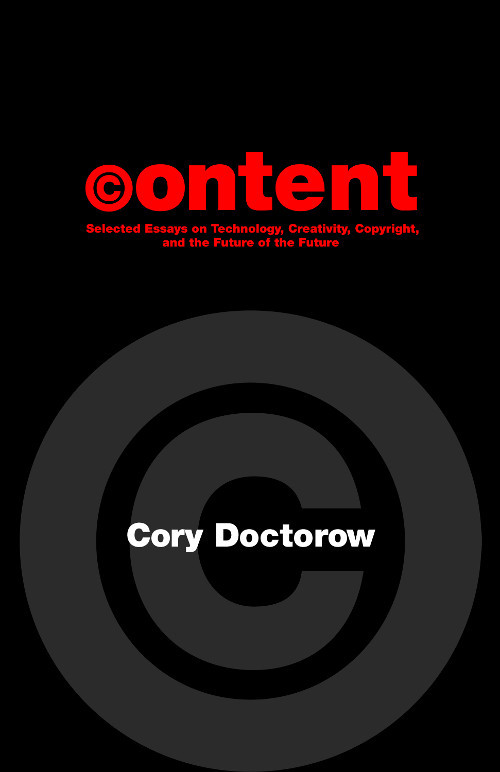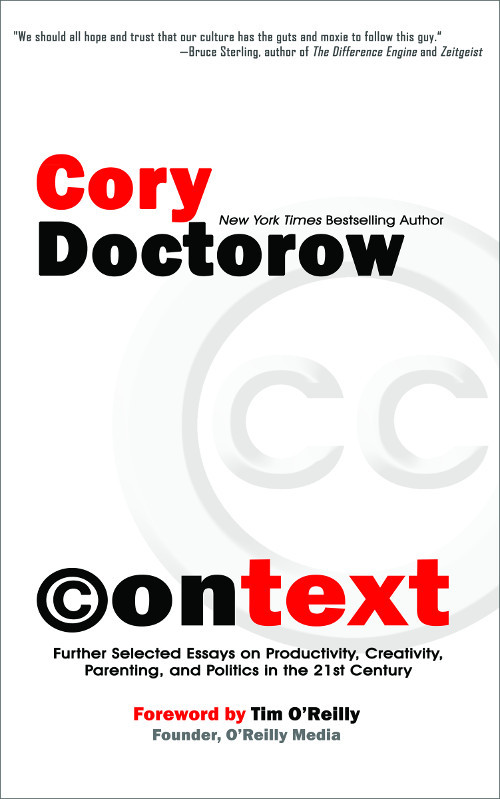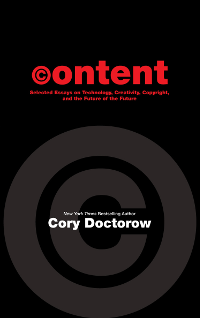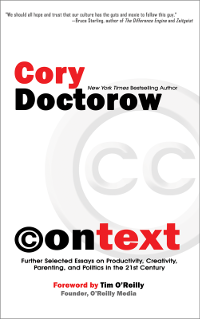Tachyon tidbits featuring David G. Hartwell, Jacob Weisman, Bruce Sterling, Cory Doctorow, and Jeff VanderMeer
The latest reviews and mentions of Tachyon titles and authors from around the web.

David G. Hartwell, Jacob Weisman with Rina Weisman at James Cummins Bookseller (photo: Ellen Datlow), Bruce Sterling, Cory Doctorow (Jonathan Worth), and Jeff VanderMeer (Kyle Cassidy)
READING OVER THE SHOULDER delivers a four part review of David G. Hartwell and Jacob Weisman’s THE SWORD & SORCERY ANTHOLOGY.
Anthology Thursday is a series of posts breaking down and reviewing an anthology every month. Because I need to read more short fiction. This month is THE SWORD & SORCERY ANTHOLOGY edited by David G. Hartwell & Jacob Weisman.
THE TOWER OF THE ELEPHANT BY ROBERT E. HOWARD
Brief synopsis: Conan will scale the walls of the Elephant Tower and attempt to steal the fabled gem at it’s heart.
Firstly, I had no idea that Conan was considered Sword & Sorcery let alone that it basically defined the genre. I also didn’t realize Conan was historical fantasy instead of high fantasy. The things you learn when you step outside your comfort zone.
This short had a lot that I really liked and it’s was clear that the author is extremely skilled in writing short fiction. In a handful of paragraphs I felt steeped in the world, a handful more and Conan was a real person with depths waiting to be revealed. The ending felt abrupt but the story had been told so there wasn’t any reason to continue.
<snip>
GIMMILE’S SONGS BY CHARLES R. SAUNDERS
Brief synopsis: Dossouye is a harden warrior woman with a war-bull for a companion. When she encounters two roughians it’s the beginning and end of a very long tale.
This was a great short story! It had everything and it was concise. I loved how it established setting effortlessly…..or appeared effortless. I would definitely read more by this author.
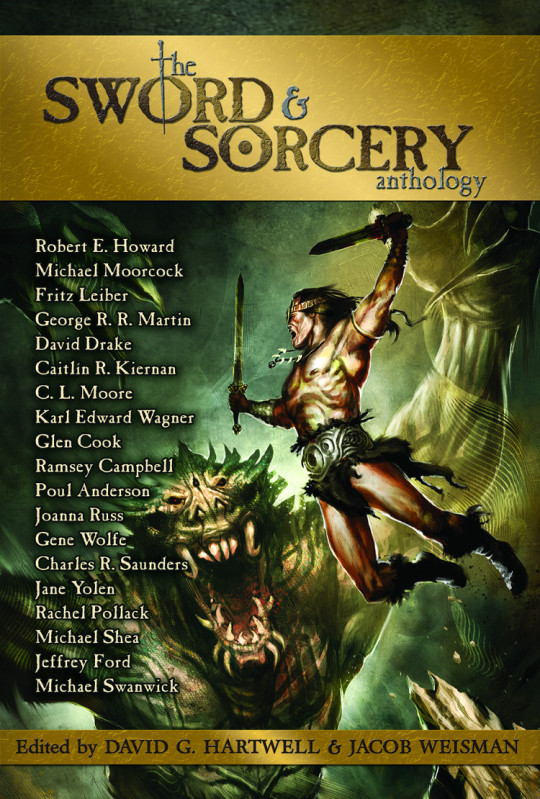
SOLDIER OF AN EMPIRE UNACQUAINTED WITH DEFEAT BY GLEN COOK
Brief synopsis: Tain, a deserter of an empire embroiled in civil war, tries to find his place and purpose in the world.
This was awesome! The style threw me there for the first couple of pages but I grew to love it for what it was. The world is amazing and I’m curious if this is a one-shot or this is a part of one of Mr. Cook’s larger worlds. Either way I want more set in this world…..I need it in my life.
<snip>
SUMMARY
It was great to step out of my comfort zone and experience different aspects of the Fantasy genre as well as different authors. Short fiction has never been something I particularly enjoyed because I like to be invested in the worlds and characters. A few pages only serves to wet my appetite.
As a whole, I enjoyed this anthology. I think most of my issues or complaints dealt with them being short fiction than anything else. It was also interesting to see how the genre evolved over the decades.
I definitely want to continue reading more anthologies. The variation on a theme is nice but also the slightly narrower focus than compared to most short fiction magazines.
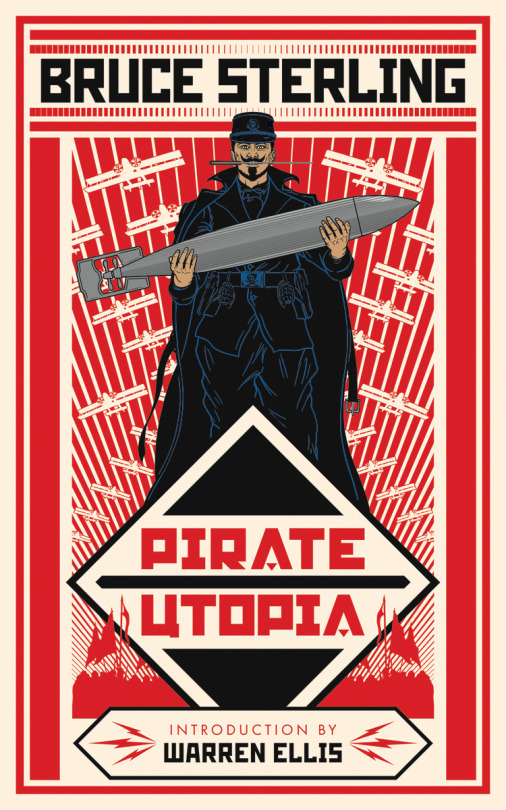
John Oak Dalton on his eponymous blog praises Bruce Sterling’s PIRATE UTOPIA.
Next I have to recommend the absolutely bats PIRATE UTOPIA by Bruce Sterling, a post-World War I-era thriller about a little upstart sliver of a country between Yugoslavia and Italy chock full of anarchists and rebels with names like “The Art Witch” and “The Ace of Hearts”–all the more crazy because it is (somewhat) grounded in real events.
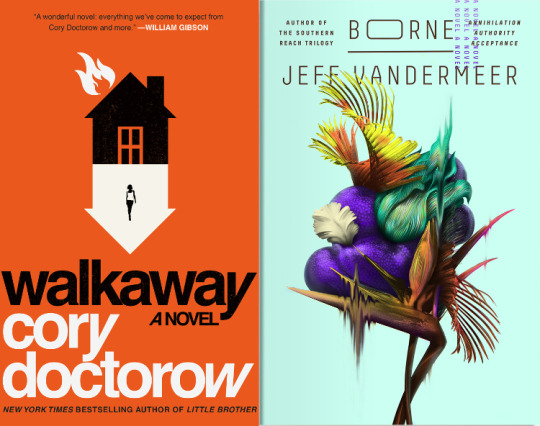
ELECTRIC LITERATURE shares a conversation between Jeff VanderMeer and Cory Doctorow.
Twenty-five years ago, Cory Doctorow and Jeff VanderMeer both attended the Clarion Writers Workshop, the premier science fiction and fantasy writing program. Since that time, VanderMeer and Doctorow have each gone on to long literary careers. By chance, their new novels, BORNE (VanderMeer) and WALKAWAY (Doctorow) are being published on the same date this year, April 25th, which got them to talking, which got us to publishing their conversation.
Jeff VanderMeer: Fresh-faced and eager as we both might seem, I’m calling it: we’re pretty much grandpas now. (Literally, too.) Looking back over the past quarter century, it’s pretty clear that a lot has changed. And a lot of it for the good. The genre boundaries are much more fluid now. I’m one of those continual label-evaders so this suits me fine. I’d prefer to shape-shift, in part because my interests and curiosity vectors are always changing. One way I think we are definitely alike is in adapting well to the new environment, if in very different ways.
Cory Doctorow: We’re in the midst of a curious era for nerdy subculture, which is something I’ve been involved with since I started taking the subway to Saturday D&D clubs when I was 9 years old. Back then, it was *really hard* to find other people who found genre sensibilities satisfying. The covers of paperbacks on buses became a recognition semaphore (“I see you are reading a John Wyndham novel; I too, have read of the Triffids!”) Networked communications brought subcultures together — counterculture fashion identities like goth and punk; out-of-mainstream political identities from anarcho-syndicalism to intersectional feminism to (alas) neo-fascism.
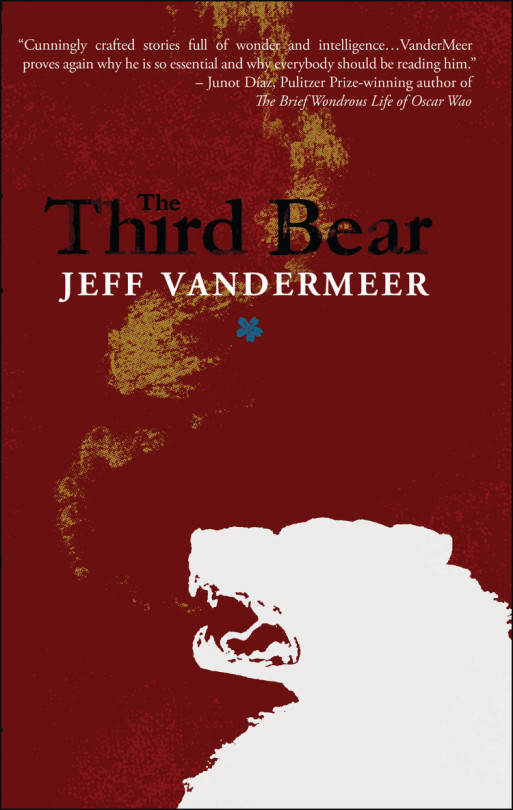
VanderMeer: I want to get back to this idea of how the landscape has changed since we started our careers. On the negative side, it can be noisy and time-consuming in how writers are expected to engage on social media. But creatively I find it very positive in the sense that the fracturing of media and of hierarchies leads to all kinds of beautiful cross-pollinations. If there’s one thing I’ve been devoted to my whole career it’s been to breaking down barriers between speculative fiction and realism, if you will — in my fiction but also in the anthologies my wife Ann and I edit. For example, it was great to publish you in THE BIG BOOK OF SF alongside Borges.
Doctorow: I think of it in terms of our communications tools, which always constrain the kinds of experiences we can have. When all you have is live performance, every live tale told is either a stage-play or a puppet show. Invent movies, and all the stories that had been shoehorned onto the stage (but really need to be movies) are liberated from stages and brought to the screen — meanwhile, all the tales that had lurked in potentia, unable to find any expression in the constraint of live performance, finally come to fruition. What’s left behind on-stage is irreducibly stage-like; it’s a purer expression of what you could only ever do onstage. And so on! Youtube gives us “shows” that are 19 seconds long, or 75 hours, things that couldn’t have lived on stage or cinema or TV screens.
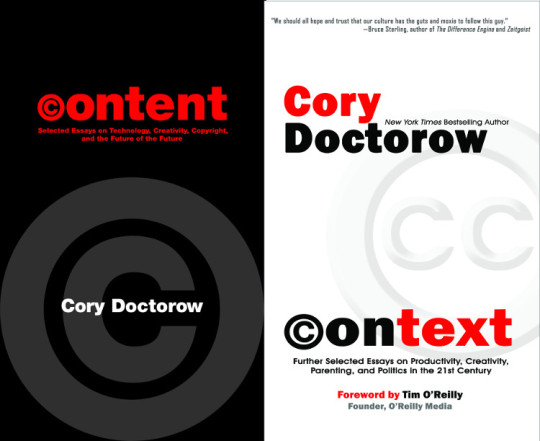
Doctorow: On good days, the activist work feeds into my artistic work, each informing the other, or being escape-valves for one another’s pressures. On bad days, the frustrations in one realm blow over into the other — wrestling with activist causes will make art seem like a pointless deck-chair rearrangement exercise. I just try and power through it. How is it for you?
VanderMeer: The same, although my emphasis comes less through the tech side and more through the environmental side. I am working on a nonfiction book about storytelling and climate change, and although it can be depressing to do that research, it’s also enlightening and very hopeful in its way. So many people are engaging with it and in so many different ways. Just this week I spoke to an MFA student whose fiction is heavily into seeing animals in a way more consistent with current animal behavior research and also to someone working on expressing climate change through performance art, along with the guy who leads the energy center at Rice, and my own stepdaughter, who wrote two chapters of the World Wildlife Fund report on sustainability last year. So, between that and hiking, which is all about experiencing our world in the moment, I do feel hopeful to some extent. We shouldn’t underestimate the good we can do day-to-day no matter what the future holds.
For more info on THE SWORD & SORCERY ANTHOLOGY, visit the Tachyon page.
Cover by Jean-Sebastien Rossbach
Design by Elizabeth Story
For more info on PIRATE UTOPIA, visit the Tachyon page.
Cover by John Coulthart
For more info about THE THIRD BEAR, visit the Tachyon page.
Cover by Jacob McMurray
For more info on CONTENT: SELECTED ESSAYS ON TECHNOLOGY, CREATIVITY, COPYRIGHT, AND THE FUTURE OF THE FUTURE, visit the Tachyon page.
Cover design by Ann Monn
For more info on CONTEXT: FURTHER SELECTED ESSAYS ON PRODUCTIVITY, CREATIVITY, PARENTING, AND POLITICS IN THE 21ST CENTURY, visit the Tachyon page.
Cover design by Elizabeth Story



